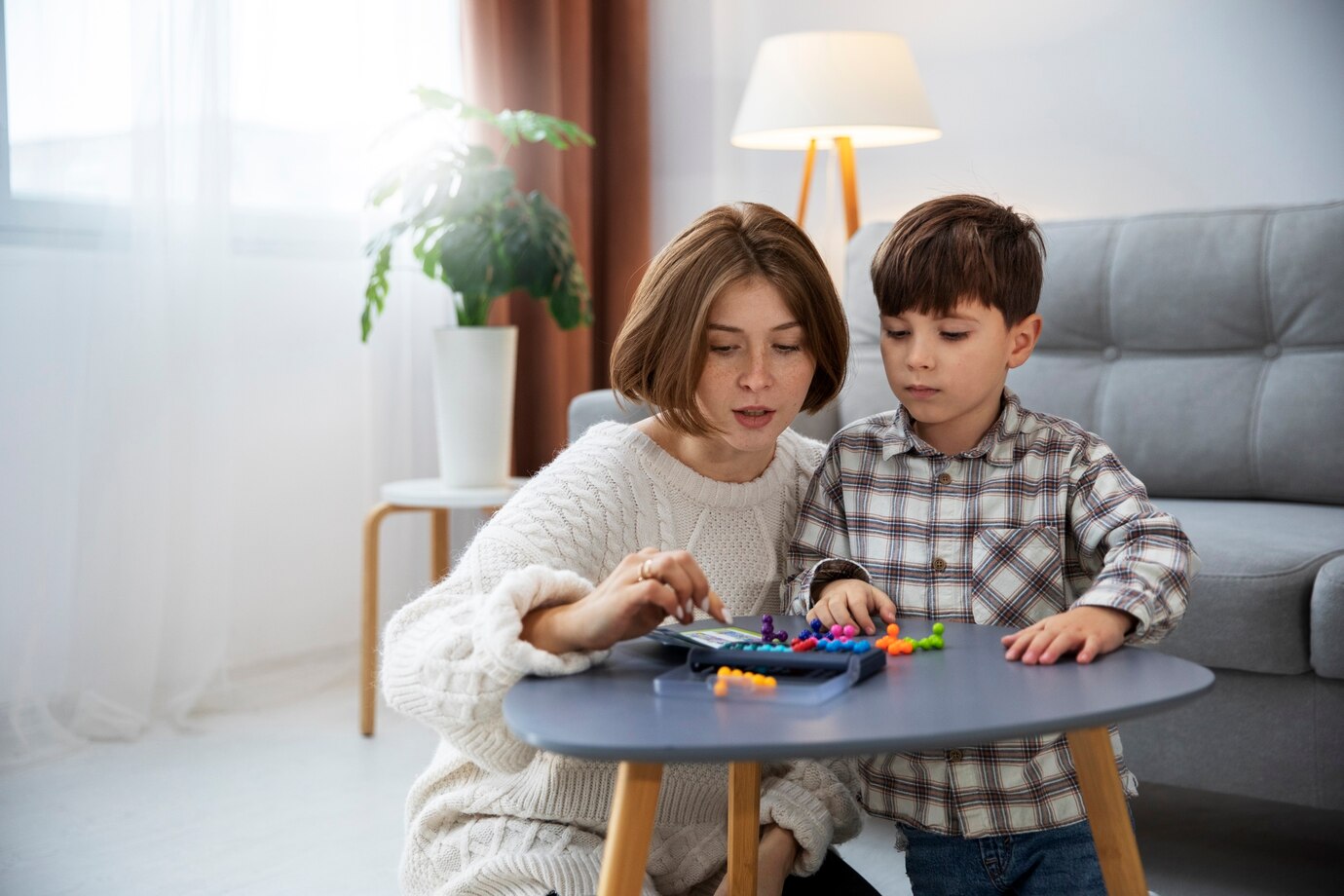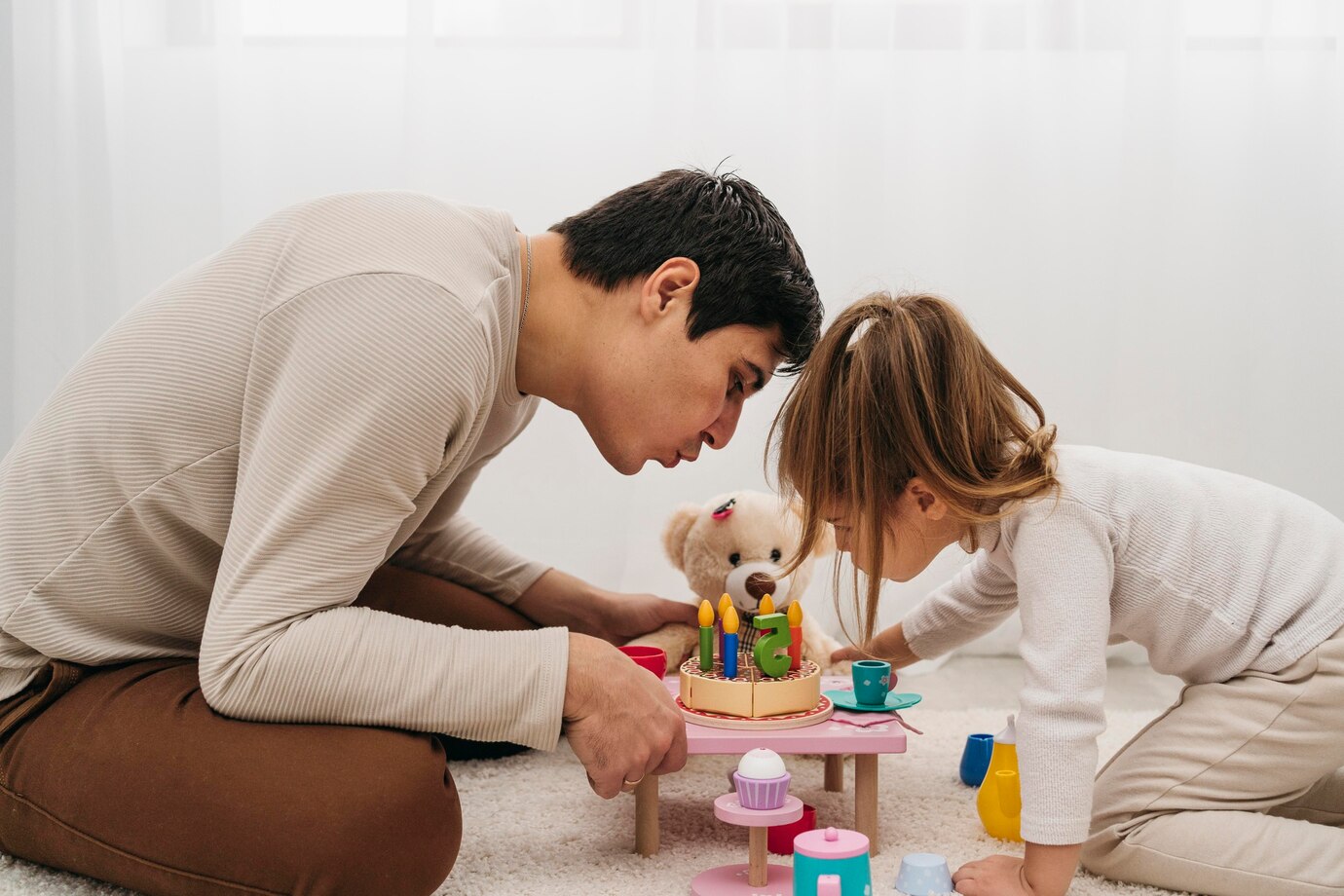
Why Quality Time Matters More Than Quantity
In modern life, schedules are packed, and time feels perpetually scarce. The concept of spending quality time with our children often takes a backseat. Many parents feel guilty about not spending enough time with their kids. They worry that the amount of time is key to building a strong relationship. Quality time is much more important than quantity for strong parent-child relationships. This article talks about why one-on-one time with kids matters. It also shares tips on how to find time for your children. Plus, it highlights the best activities for family bonding.
The definition of quality time varies from family to family. Some parents might focus on big gestures like vacations or fancy outings. But quality time is really about simple, everyday moments together. It’s about creating meaningful moments of connection and ensuring that each child feels valued and understood. Small acts like a 10-minute chat before bed, helping with homework, or cooking together can strengthen a loving bond.
Key Benefits / Why It Matters

The Importance of One-on-One Time with Kids
The importance of one-on-one time with kids cannot be overstated. This time helps parents bond with their children. They can better understand their kids’ thoughts, feelings, and experiences. It fosters a sense of security and belonging, which is crucial for a child’s emotional development. A study from the University of Essex shows that kids with regular, quality time with their parents tend to have higher self-esteem and do better in school.
One-on-one time lets parents show good behaviors, share values, and promote open talk. It gives children a safe space to express themselves. They know their parents are listening closely. This attention is important for their mental well-being. Research shows that kids who feel heard by their parents build better problem-solving skills. They are also more ready to handle stress and challenges.
Real-Life Applications
Consider a busy working parent who manages to set aside 30 minutes each evening to spend with their child. During this time, they might read a book, play a game, or talk about the day’s events. Even though the time is short, these interactions can be more powerful than hours spent together without real connection. The key is not how much time is spent but how present and engaged a parent is during these moments.
Step-by-Step Guide / Actionable Insights
How to Make Time for Children
Incorporating quality time into your daily routine requires intentionality and planning. Here’s a step-by-step guide to help you make the most of your time with your children:
Prioritise and Schedule
Start by evaluating your daily schedule. Identify pockets of time that can be dedicated solely to your child. This might mean waking up a bit earlier, cutting down on screen time, or even delegating certain tasks. Once you find these time slots, schedule them as you would any other important appointment.
A good strategy is to integrate quality time into existing routines. For example, if mornings are chaotic, consider shifting some activities to the evening. Alternatively, use time in the car or while preparing meals as an opportunity to catch up with your child.
Be Present
When spending time with your child, ensure that you are fully present. This means putting away distractions and focusing entirely on the moment. Distractions could include phones or work-related tasks. Active listening and engagement are key to making your child feel valued and heard.
Children can sense when their parents are distracted or disengaged. Even a short period of focused attention can be more effective than prolonged but inattentive time together. Make eye contact, listen actively, and show real interest. This will impact how a child feels about their importance in a parent’s life.
Choose Meaningful Activities
Select activities that both you and your child enjoy. This could range from outdoor adventures to indoor crafts or cooking together. The goal is to create a shared experience that strengthens your bond.
Every child is unique, so it’s important to find activities that align with their interests. If a child enjoys sports, playing a game of soccer or going for a bike ride together can be a great way to connect. If they prefer quiet activities, reading a book or doing a puzzle may be more effective.
Be Consistent
Consistency is crucial in building trust and reliability. Make sure that the time you set aside for your child is honoured regularly. This routine helps children feel secure and reinforces the importance of your relationship.
A child who knows they can count on their parents for regular one-on-one time is more likely to open up and share their thoughts and feelings. This consistency builds trust. It creates a strong emotional bond between parent and child.
Additional Expert Tips & Common Mistakes to Avoid
Best Family Time Activities
Engaging in the best family time activities can enhance the quality of your interactions. Here are some expert-recommended activities:
- Outdoor Adventures: Exploring nature can be a refreshing way to bond while enjoying the benefits of physical activity. You can go hiking, cycling, or simply walking in the park.
- Creative Projects: Activities such as painting, model building, or gardening boost creativity and promote teamwork and communication.
- Cooking Together: Making meals as a family teaches kids important life skills and promotes teamwork and conversation.
- Game Nights: Board games or puzzles can be a fun way to engage in friendly competition and laughter. This fosters a sense of togetherness.
Common Mistakes and Misconceptions
One common misconception is that more time automatically equates to better relationships. However, without genuine engagement, this time may not contribute meaningfully to the relationship. Another mistake is underestimating the power of small, everyday interactions. Simple gestures like a morning hug or a bedtime story can have a profound impact on your child’s sense of love and security.
Additionally, parents often assume that children need grand outings or expensive toys to feel loved. In reality, children thrive on consistency, emotional presence, and a sense of being heard. Overcomplicating quality time can sometimes detract from its purpose.
Advanced Insights / Expert Recommendations

Beyond the Basics: Cultivating Emotional Intelligence
Quality time with your children is not about activities. It’s also an opportunity to nurture emotional intelligence. Help your child share their feelings and thoughts. Show empathy and understanding in how you respond. This practice strengthens your bond and gives your child essential social and emotional skills.
Talking openly about feelings helps kids understand emotions. This skill teaches them to deal with challenges in a positive way. It helps parents connect more deeply with their kids. This makes communication easier as children grow up.
Unique Industry Perspectives
Psychologists and child development experts often emphasise the importance of ritualised family time. This could be a weekly family meeting where everyone discusses their highs and lows of the week. Or a monthly outing that everyone looks forward to. These rituals create a sense of tradition and stability. This will contribute to a cohesive family unit.
Building Lasting Bonds with Your Child

In conclusion, modern life makes it hard to spend time with our kids. Focusing on quality time can create stronger and more meaningful relationships. Parents can build a strong bond with their kids through one-on-one time, being present, and fun activities. As you reflect on your family dynamics, consider how you can add more quality time to your routine. Remember, it’s not about the hours spent but the moments shared that truly matter. So, why not start today by planning your next family adventure? Or setting aside time for a heartfelt conversation with your child? The rewards are immeasurable.